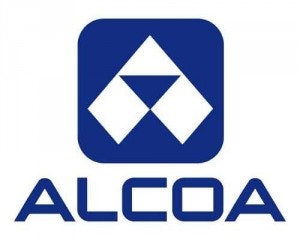If you ask investors, most would say that growth is a good thing; growth adds value. Chief Executive Officers and board members largely believe that all growth is good as well.

Value destroyers
Alcoa Inc (NYSE:AA) is a good example of how growth can destroy value. Alcoa Inc (NYSE:AA) operates in a mature industry that faces significant competition, especially from abroad. However, management continues to grow its asset base by building new refineries and re-investing in old ones in an attempt to boost earnings. The company has benefited from a global recovery in alumina demand and is growing at an above-average rate in emerging markets, but it is still anything but a great business.
Allegheny Technologies Incorporated (NYSE:ATI) operates in a subindustry similar to that of Alcoa’s. The company has benefited from the boom in hydraulic fracturing techniques used in unconventional oil & gas plays. Allegheny Technologies Incorporated (NYSE:ATI) recently bought its way into the aerospace industry, where it hopes to grow alongside global air traffic.
Century Aluminum Co (NASDAQ:CENX) is the final player in a capital-intensive industry that is destroying value in its pursuit of growth. The cyclicality of the industry leads to unstable earnings and the ever-present threat of bankruptcy. At the moment, the increase in demand for aluminum has put the company in relatively good standing, but continued investment in the company will only lead to low returns on invested capital.
Low return businesses
Alcoa Inc (NYSE:AA), Allegheny Technologies Incorporated (NYSE:ATI), and Century Aluminum Co (NASDAQ:CENX) are each striving to grow amidst strong competition. Most capital-intensive industries continue to add more and more capacity despite the low returns; it is as though they refuse to accept their fate and push on in the hope of one day their investments will pay off.
Maybe one day the investments will pay off, but shareholders should not get their hopes up. All of the money that these companies have poured back into their businesses over the years has earned a lower return for shareholders than if management had simply purchased treasury bonds in the case of Alcoa Inc (NYSE:AA) and Century Aluminum Co (NASDAQ:CENX), and lower than a broad-based equity index fund would have returned in the case of Allegheny Technologies Incorporated (NYSE:ATI). In other words, shareholders would have been better off if management had decided to invest in the stock market rather than in the business.

Bottom line
Growth can destroy value just as easily as it can add value. Shareholders should not simply look to see how quickly a company is growing, but should also look to see how much value that growth is creating. In the case of Alcoa, Allegheny Technologies Incorporated (NYSE:ATI), and Century Aluminum Co (NASDAQ:CENX), growth is not creating any value whatsoever.
The article When Growth Destroys Value originally appeared on Fool.com and is written by Ted Cooper.
Copyright © 1995 – 2013 The Motley Fool, LLC. All rights reserved. The Motley Fool has a disclosure policy.

